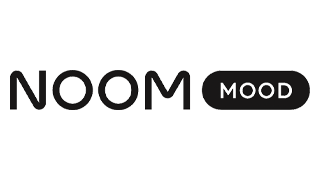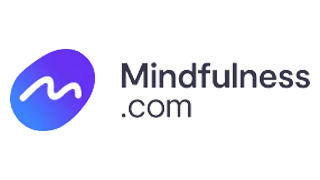Table of Contents
- We spent more than 10,000 hours researching over 70 mental health platforms and apps and our testers signed up for the seven most popular mental health apps to bring you our top picks.
- Our testers test each mental health app for at least two weeks, focusing on the sign-up process, listening to audio sessions, engaging with activities, and watching mindfulness videos.
- We signed up and tried the Calm app, exploring meditation sessions and music to listen to while falling asleep.
- Learn more about how we tested the Calm App.
Key takeaways
- We recommend the Calm app to people seeking guided meditations, breathing exercises, sleep stories, sleep sounds, and mindfulness tools.
- The Calm app is free to download and users can access some free content.
- Calm Premium provides access to the app’s full library of content and costs $14.99 per month with auto-renewal.
- Calm Health is an additional app only available by invitation through select health insurance plans and employers.
Sometimes, getting a good night’s sleep may be difficult, which can impact mental health. A review of studies concluded that nearly one-third of the general population experience symptoms of insomnia, which is difficulty falling asleep or staying asleep. Calm, an app that offers tools like breathing techniques, guided meditation, nature sounds, and sleep stories narrated by celebrities, may be useful for some people to sleep.
Research shows the Calm app can be a tool to help you sleep, which could mitigate fatigue and daytime sleepiness in adults with sleep disturbances. According to a survey of 9,894 people who use Calm, 90% of users saw an improvement in their ability to fall asleep, 79% saw an improvement in their ability to stay asleep, and 70% said it helped them get restful sleep.
Read our Calm app review to see if this is the best app to calm your mind and see our review of the best mental health apps.
Calm app highlights
Our experience using the Calm App
Our Handbook Team enjoys using the Calm app as an introduction to guided meditation and to help fall asleep. The soothing voices and music help us focus more on the here and now and less on the future or the past. Calm offers a variety of journals to help us reflect on our feelings and reframe negative thoughts into more positive ones. The free content is limited when you download the app, and we think it’s worth subscribing to Calm Premium to get the most out of it.
- Who may like Calm: The Calm app is for adults and kids who want an introduction to guided meditation and mindfulness or help falling and staying asleep.
- Who may want to avoid Calm: Anyone with a serious mental illness should seek a licensed therapist. It is also not meant to treat any type of sleep disorder.
What is the Calm app?
Calm is an app that offers guided meditation and mindfulness tools. The app’s large content library includes guided meditations, breathing exercises, sleep stories, calming soundscapes, and mindfulness lessons. Calm also offers content for kids; the app has lullabies and stories to help kids settle for bedtime.
Upon opening the app, users are encouraged to take a few deep breaths to set the tone for whatever is about to happen next—whether they are getting up in the morning and need positive reinforcement or are trying to calm their mind after a stressful day.
Users can access meditation sessions that range from 90 seconds to 90 minutes. The app also has music playlists for a variety of moods and preferences.
How does the Calm app work?
Calm offers two types of plans: basic and premium. The app itself is free to download and provides you with some free content as part of the basic plan. This includes sleep stories, gratitude check-ins and exercises, and mood check-ins. Calm Premium costs $14.99 per month, or $69.99 annually, and gives you unlimited access to the app’s full library of content and features, including:
- Guided meditations.
- Music for relaxation, focus, and sleep.
- Calming nature sounds.
- Lullabies and sleep stories for adults and kids.
- Fresh content each week.
From one of our Calm testers
“During an afternoon nap, I played the sleep music, specifically the ‘Peaceful Piano Classics.’ This was, by far, my favorite feature of the Calm app. It was incredibly relaxing to hear classical piano music, and I actually found myself dozing off into a deep sleep, which is nearly impossible for me in the afternoon. The first song that played was ‘Clair de Lune.’ On the app, you can see who the artist is, a lovely painting in the background, and the description of the playlist. You can also ‘heart’ a song, give it a thumbs up, set a timer, or create a playlist.”
Does meditation work?
“I think the Calm app is a great resource for people looking for guidance in meditation and a regular practice to engage in, should they be open to it. I do think that apps like Calm, in general, are great as long as they are not cost-prohibitive,” says Tirrell De Gannes, a clinical psychologist at Thriving Center of Psychology.
Research shows that meditation helps ease the symptoms of social anxiety disorder (SAD), post-traumatic stress disorder (PTSD), anxiety, and depression by calming the emotional and cognitive parts of the brain. Deep breathing during meditation can lower your heart rate. Meditation can also help physical health by strengthening your immune system and lowering blood pressure. These benefits may help to improve sleep, focus, and mood. Guided meditation can be a great way to start for beginners who have trouble embracing stillness and letting go of fleeting thoughts. However, if you try meditation and find it makes your mental health symptoms worse, it might not be for you.
How to sign up for Calm
Calm is accessible on desktop browsers and available to download to your iOS or Android device. You can download and use certain features of Calm for free with the basic plan. You may also be offered a free trial of Calm Premium to try all of the platform’s features. But you have to provide your payment information to access the trial, and if you don’t cancel before it ends, you will be automatically enrolled in a monthly subscription. Signing up with Calm is simple. Just enter your email address and user name before answering some questions to personalize your experience.
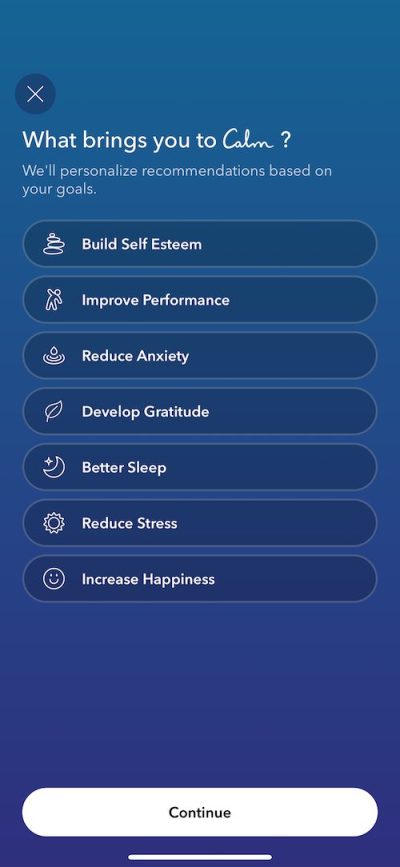
Calm has 11 different features and focus areas:
- Breathe.
- Calm Kids.
- Check-ins.
- Dailies: Daily sessions focusing on mindfulness.
- Meditation.
- Sleep.
- Music.
- Wisdom.
- Movement.
- For work: Sessions to help with stress and productivity.
- Soundscapes.
If you’re looking for relaxation techniques, professional and personal development tips, or simply want to kick back and listen to a narrated story, the app provides a variety of tools.
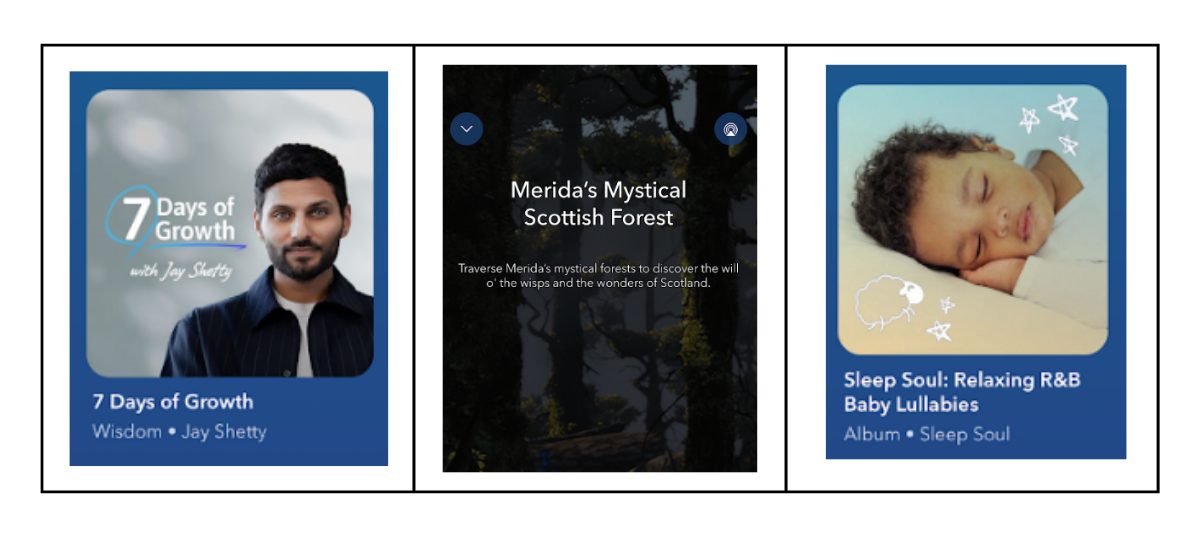
Meditation and sleep sessions
The first meditation our tester tried was called “Managing Overwhelm” to manage anxiety. This session is only five minutes long and is considered an “anchoring meditation.”
“The narrator’s voice is very soothing and has a great cadence to keep me focused and relaxed. He instructs how to start the meditation, including where to sit and how to position yourself while seated. I loved that it was short and effective,” they say.
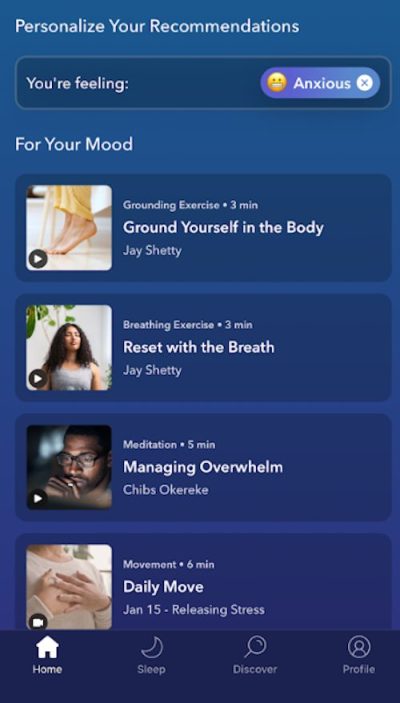
Calm also offers relaxing stories narrated by celebrities, including singer Katy Perry and Lakers basketball star LeBron James. The celebrity sleep stories are not for everyone, depending on your preferences. If you’re a fan of a particular singer or actor, you may enjoy the sounds of their voices before sleep.
“I listened to ‘Dream With Me,’ which is a sleep story by singer Harry Styles. While he does have a pretty soothing voice, and the story was relaxing, I couldn’t get past knowing that it was Harry Styles narrating in my bedroom. I couldn’t stop thinking about how weird it was, which didn’t help me relax. The session was 40 minutes long, but I had to cut it after 20 minutes,” our tester says.
But our tester found solace in the soundscapes feature, which has soothing sounds and sleep meditations. “I loved the sleep soundscapes. This was the most effective at helping me sleep as it mimicked my white noise machine. There are various soundscapes to choose from. One was ‘The Enchanted Moss Garden,’ which has bird sounds and a soothing creek. Another, called ‘The Cloud Mountain,’ focused on wind-like sounds and ambiance, which especially resembled my sound machine,” they say.
Additional features
Calm also offers the following types of journals you can use to pause and reflect on your journey:
- Mindfulness: Write about what’s on your mind or how you respond to Calm’s mindfulness content.
- Sleep: Track your sleep and write down what supports your best sleep.
- Dream: If you remember your dreams, document them to see if there are common themes and patterns over time.
- Intentions: How do you support the people in your life? Make notes.
- Feelings: Jot down big feelings, insecurities, and successes in your life.
- Gratitude: What makes you feel grateful?
- Holiday: If holidays are stressful or triggering for you, write ways to find peace.
- Discovering happiness: Flip the script on negative emotions and write down what’s going right in your day, week, and month.
- Peak performance: Write about what you can apply to your career based on the exercises from Jason Kidd’s Peak Performance MasterClass.
- Creating living: Write about the life you desire, based on the exercises from the Creative Living Beyond Fear MasterClass.
What other users are saying
Many app store reviewers find Calm useful for easing a busy, worried, and anxious mind. Many reviews report that sleep stories help people with sleep struggles drift off.
A few complaints mention technical issues and distracting pop-up images meant to be calming, like nature scenes and seascapes. Calm advertises a free seven-day trial, but you must enter payment information first. If you want to cancel, you must do that before day seven ends, or you will automatically be enrolled. Some reviewers have called it “bait and switch” pricing.
How much does the Calm app cost?
The Calm app is free to download and use, but the free content you can access is limited. For unlimited access, you will need to subscribe to Calm Premium. You can pay for this in a few different ways:
- Monthly: $14.99
- Annual: $69.99
- Calm for Life: $399.99 one-time fee.
- Family plan: $99.99 per year, with up to six adults. There’s no free trial with this plan.
- Student plan: $8.99 per month after a three-month free trial for U.S.-based students who are Amazon Prime members.
Subscribers can pay using Apple Pay, Google Pay, PayPal, and most major credit and debit cards.
Is Calm covered by insurance?
No. There is a separate app called Calm Health that is only available by invitation through certain insurance companies or employers as part of their wellness programs. Calm Health is a mental health app that involves a mental health screening and gives users access to self-guided programs and tools designed by physicians and mental health professionals
Some of the insurance companies that may offer a Calm Health subscription include:
- Aetna
- Anthem.
- Blue Cross Blue Shield.
- Cigna.
- United Healthcare/Optum.
Contact your insurance provider or employer to learn if they offer a Calm Health subscription.
How to save money on Calm
Calm occasionally offers promotional discounts. The app offered 40 percent off the annual membership during our testing. AARP members can save 30 percent off the annual subscription cost for three years. Calm may also offer free trials of the Premium plan so you can try out the full suite of features before paying for the subscription.
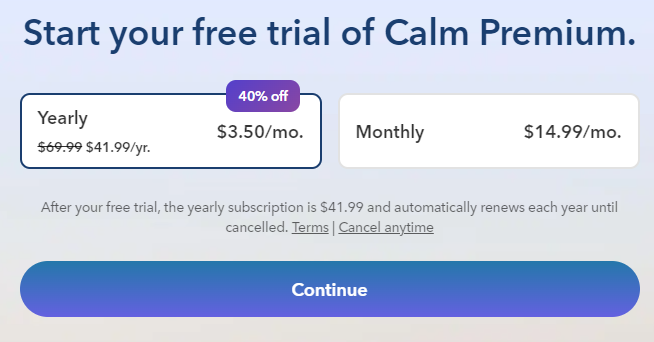
Our experience with Calm customer service
We contacted Calm customer service regarding an Apple app store complaint about the lack of accessibility for people who are blind and use a screen reader, as they are unable to use all of the app’s features. We did not receive a response.
Our Calm app testing experience
Our Handbook Team members research, download, and personally test mental health apps to find the best ones. To date, our testers have subscribed to seven top mental wellness apps to test mindfulness, meditation, sleep, and other features. Our testers explored the Calm platform for two weeks, listening to audio sessions, engaging with activities, and watching mindfulness videos. We instruct testers to try the platform through the lens of a real user, paying attention to how easy or difficult it is to integrate these activities into their daily routine. They log their experience in a diary and share their findings from their weeks of testing. During that time, we do the following:
One detail we focus on is the sustainability of each app. A successful mental health app teaches you how to establish and maintain healthy habits for the long term. Our testing notes, other customers’ experiences, and health experts’ professional opinions all inform the conclusions in this review.
Mental health apps vs. online therapy platforms
Mental health apps and online therapy platforms fulfill different needs. Mental health apps support people in building healthy habits, such as meditation, positive thinking, and mindfulness, to enrich their lives. Online therapy platforms and apps often have habit-building features, but their main benefit is access to one-on-one therapy with a licensed mental health provider.
Though you can use mental health apps on their own to help build healthy habits, the mental health professionals we spoke to for this review recommend using the apps together with therapy if you’re dealing with depression, anxiety, or other mental health concerns. In those cases, we recommend you try one of the best online therapy platforms we’ve tested, such as BetterHelp or Talkspace.
Compare Calm to other meditation apps
Calm is aligned in price with competitors Headspace and Mindfulness.com, but Noom Mood costs a bit more. If you choose Calm’s annual subscription, it only adds up to $5.83 per month, which is more budget-friendly than other meditation apps we’ve tested. Calm includes celebrity-narrated stories, which other apps do not have.
| Monthly cost | $14.99 | $12.99; free for U.S. teens 13–18 years old | $37.25 (a four-month auto-renew plan for $149) | $16.99 |
| Free trial | Yes | Yes | No | Yes |
| Focus areas | Meditation, mindfulness, focus, and sleep | Meditation and daily routines | Stress relief | Mindfulness |
| Compatible devices | iOS, Android, and desktop | iOS and Android | iOS and Android | iOS and Android |
Our final verdict
Mindful meditation and breathing exercises can be a great tool for settling a busy or worried mind, and the Calm app offers lots of content. Calm’s journals provide opportunities to reflect on your feelings and track your progress. If you’re feeling overwhelmed, the Calm app may help you take much-needed mental health breaks throughout your day. While the Calm app is free to download and you can access some content for free, you will need to subscribe to the Calm Premium plan to make use of all the app has to offer.
Calm can be a helpful part of your mental health toolkit, but it is not an online therapy platform. If you need mental health treatment, you should see your health care provider or contact an online psychiatrist or therapist.
Frequently asked questions
Calm is free to download and offers some free content. For unlimited access to the app’s features and content, you will need the Calm Premium subscription, which costs $14.99 per month or $69.99 per year.
The Daily Calm Community is a Facebook group with more than 90,000 members who post reflections on the Calm app and generally support one another. According to Calm, the group’s intention is to cultivate a sense of connection.
Our testers like both apps, but Calm has more offerings in addition to guided meditation. Calm includes celebrity-narrated stories, soothing music to help you drift off to sleep, and professional wisdom to help you focus during work. Headspace is free, while Calm is not.
- Huberty, J.L., Green, J., Puzia, M.E., Larkey, L., Laird, B., Vranceanu, A., Vlisides-Henry, R. & Irwin, M.R. (2021). Testing a mindfulness meditation mobile app for the treatment of sleep-related symptoms in adults with sleep disturbance: A randomized controlled trial. PLOS One. Link
- Scott, A.J., Webb, T.L., Martyn-St James, M., Rowse, G., & Weich, S. (2021). Improving sleep quality leads to better mental health: A meta-analysis of randomised controlled trials. Sleep Medicine Reviews, 60. Link
- Huberty, J., Puzia, M.E., Larkeyn, L., Vranceanu, A.M. & Irwin, M.R. (2022). Can a meditation app help my sleep? A cross-sectional survey of Calm users. PLoS One, 16(10). Link
- Jamil, A., Gutlapalli, S.D., Ali, M., Oble, M.J.P., Sonia, S.N., George, S., Shahi, S.R., Ali, Z., Abaza, A., & Mohammed, L. (2023). Meditation and its mental and physical health benefits in 2023. Cureus, 15(6). Link








